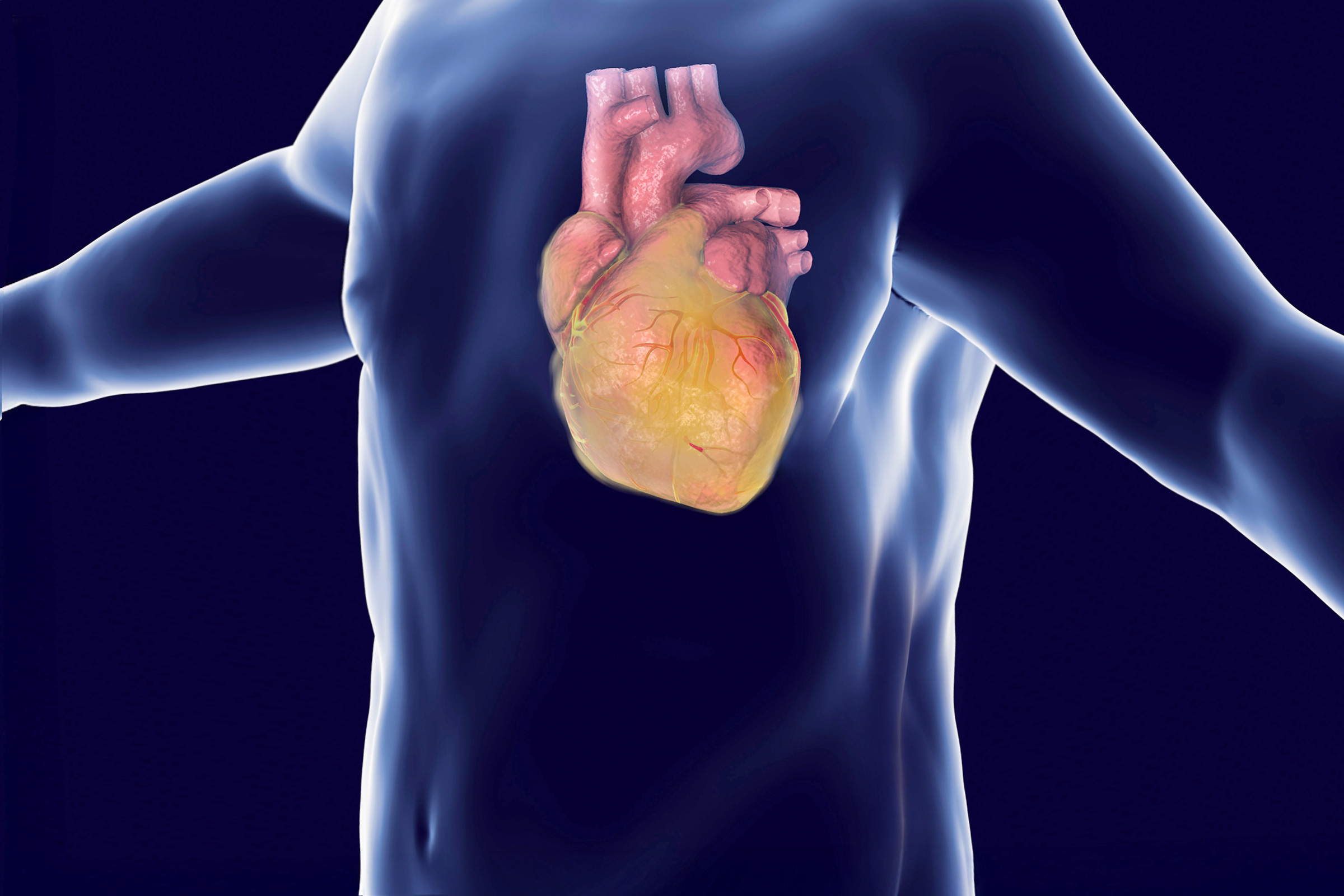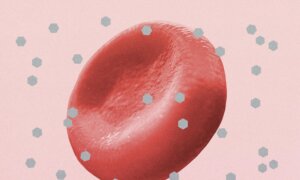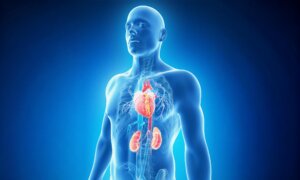Risks Explained
Heart disease is the top cause of death worldwide. While excess body fat is a known risk factor, the location of that fat is vitally important, according to a 2014 study published in the journal Cardiovascular Diagnosis and Therapy.
Natural Prevention and Treatment
The following three approaches to the natural prevention and treatment of visceral fat have some similarities and distinct differences.
1. Health Optimization Approach
Dr. Sean O’Mara, a health and performance optimizing physician and researcher, offers a program to remove visceral fat, particularly that surrounding the heart. He suggests that reducing or eliminating visceral fat is key to heart health and asserts that this key is not being addressed by the medical community at large.
- Diet: Instead of what many regard as a healthy diet, such as the Mediterranean diet, follow the live carnivore diet. This includes meat and fermented-only fruits, vegetables, and dairy products, such as yogurt. Non-fermented fruits and vegetables contain mildly inflammatory compounds that are eliminated by fermentation along with sugars present in carbohydrates. Fermentation retains the nutrients and beneficial microbes that boost microbiome health in the gut. It is also important to avoid processed foods.
- Fasting Lifestyle: Practice prolonged fasting, as opposed to milder forms of fasting called intermittent fasting. Prolonged fasting is similar to the eating pattern of our ancestors, who ate for two to three days, followed by extended periods of fasting. People who engage in extended fasts are healthier and can reverse more disease.
- Exercise: Long-distance running, jogging, or aerobics, in which the body endeavors to retain fat, is not recommended. Instead, anaerobic activity is encouraged, which is what happens in the absence of oxygen. An example is sprinting, but walking is also a good anaerobic exercise.
- Sauna and cold plunge: Using a sauna produces substances referred to as heat-shock proteins, while the cold plunge produces cold-shock proteins, both of which make people healthier and reduce death risk.
A small, male-only study published in Nutrients found that in those who could tolerate it, a 10-day extended fast established metabolic balance and burned fat. The investigators recommended between three and six days of extended fasting in those who can tolerate it.
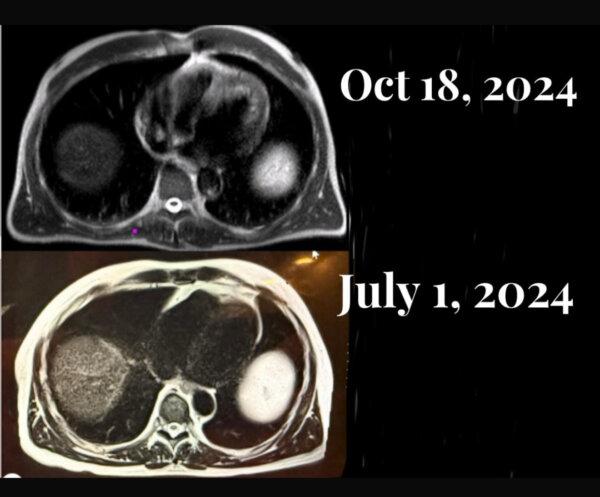
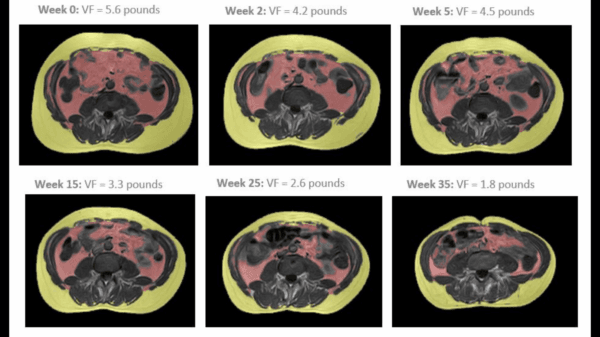
2. Natural Heart Doctor Approach
Dr. Jack Wolfson, a board-certified cardiologist and one of the country’s top functional medicine doctors, told The Epoch Times that “fat around the heart correlates with visceral belly fat and fatty liver. It is also more common in people who smoke or are obese or diabetic.”
- Eat Well: Follow the Paleo diet, an eating plan that consists of foods that our ancestors ate, including grass-fed meat, wild seafood, fruits, vegetables, seeds, nuts, eggs, and nutritious fats. Eat organic, which means avoiding artificial ingredients and pesticides.
- Live Well: Getting at least seven hours or more per night of sleep is critical. Our ancestors went to bed shortly after sundown and woke before sunrise. Sunshine exposure to the skin and eyes is important, as the more time we spend outdoors, the longer we live, although excess exposure is not recommended. The Skin Cancer Foundation recommends, at most, 10 to 15 minutes of unprotected sun exposure two to three times per week. Exercise is vital, so we need to walk, bike, and engage in hundreds of activities. Keep your environment as healthy as possible, which means avoiding toxins, pollutants, and mold. Sauna, air purification, and water purification are also beneficial.
- Think Well: Happy people live longer than those who are not happy. People with mental health issues have cardiovascular conditions such as high blood pressure, heart attack, and stroke at a much younger age. Rather than taking a pharmaceutical drug, such as an antidepressant, the answer is to find natural strategies to get rid of anxiety, fear, worry, and depression.
- Evidence-Based Supplements: Pharmaceuticals have limited benefits. To illustrate, statins reduce cholesterol but have no meaningful benefit in lowering the risk of heart attack, stroke, and death. We are looking to reduce and eliminate pharmaceuticals, all of which have side effects. Instead, consider taking berberine and vitamin C.
When people follow his program, their health improves 100 percent of the time, according to Wolfson.
3. Naturopathic Approach
Naturopathic medicine is a field that uses natural remedies to promote healing. In an interview with The Epoch Times, Caroline Mansfield, a registered naturopath at Human Consciousness Support, describes her approach to reducing fat around the heart.
- Eat an Anti-Inflammatory Diet: Include items rich in whole foods, such as leafy green vegetables, healthy fats, and lean proteins, and avoid processed and high-sugar foods.
- Get Regular Exercise: Partake in regular moderate- to high-intensity exercise, which improves the metabolism and fat burning. Experts define moderate as exercise that increases the heart and breathing rate but doesn’t make it hard to talk, while vigorous exercise makes talking difficult.
- Manage Stress: Optimizing sleep and relaxation time helps to reduce cortisol, a key driver of fat accumulation.
- Detoxify: Detoxification support is vital. Using natural products such as zeolite helps remove toxins and endocrine disruptors that have been shown to contribute to fat storage and inflammation.
“Together these strategies have been shown in clinic to help reduce the metabolic and cardiovascular risks associated with fat around the heart,” Mansfield said. “In my experience diets shown to reduce visceral fat in the belly may also reduce visceral fat surrounding the heart.”
